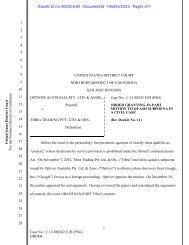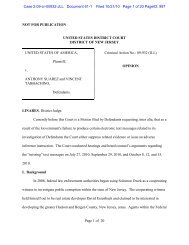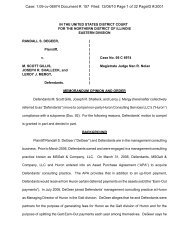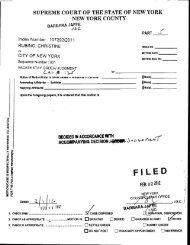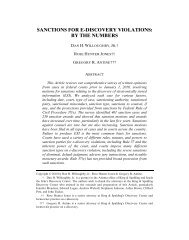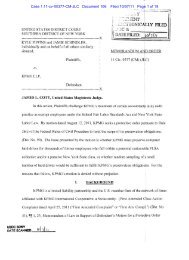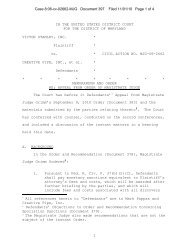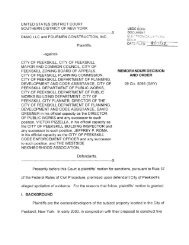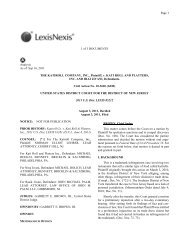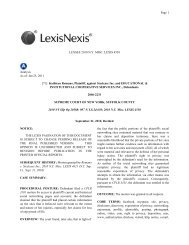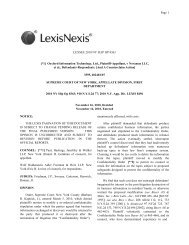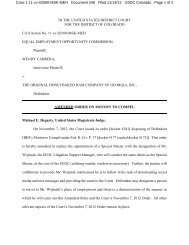Rimkus Consulting Group Inc. v. Cammarata - Ballard Spahr LLP
Rimkus Consulting Group Inc. v. Cammarata - Ballard Spahr LLP
Rimkus Consulting Group Inc. v. Cammarata - Ballard Spahr LLP
You also want an ePaper? Increase the reach of your titles
YUMPU automatically turns print PDFs into web optimized ePapers that Google loves.
Case 4:07-cv-00405 Document 450 Filed in TXSD on 02/19/10 Page 25 of 139<br />
the defendants deleted the emails and attachments; evidence that some of the deleted emails<br />
and attachments were favorable to the defendants; and an extensive amount of other evidence<br />
for the plaintiff to use. As a result, the jury will not be instructed that the defendants engaged<br />
in intentional misconduct. Instead, the instruction will ask the jury to decide whether the<br />
defendants intentionally deleted emails and attachments to prevent their use in litigation. If<br />
the jury finds such misconduct, the jury must then decide, considering all the evidence,<br />
whether to infer that the lost information would have been unfavorable to the defendants.<br />
Rather than instruct the jury on the rebuttable presumption steps, it is sufficient to present the<br />
ultimate issue: whether, if the jury has found bad-faith destruction, the jury will then decide<br />
to draw the inference that the lost information would have been unfavorable to the<br />
defendants. 21<br />
III.<br />
Background<br />
A. Factual and Procedural History<br />
<strong>Rimkus</strong> is a forensic engineering contractor with its principal place of business in<br />
Houston, Texas. Founded in 1983, <strong>Rimkus</strong> has thirty offices in eighteen states and works<br />
across the country. <strong>Rimkus</strong> analyzes unexpected accidents and occurrences that cause<br />
21 This is similar to the approach courts use in other contexts involving threshold burden-shifting analyses<br />
by the judge followed by a trial in which the jury is instructed on the ultimate question. See, e.g., Kanida v.<br />
Gulf Coast Med. Personnel LP, 363 F.3d 568, 576 (5th Cir. 2004) (“This Court has consistently held that<br />
district courts should not frame jury instructions based upon the intricacies of the McDonnell Douglas burden<br />
shifting analysis. Instead, we have held that district courts should instruct the jury to consider the ultimate<br />
question of whether a defendant took the adverse employment action against a plaintiff because of her<br />
protected status.” (citations omitted)); Olitsky v. Spencer Gifts, <strong>Inc</strong>., 964 F.2d 1471, 1478 (5th Cir. 1992)<br />
(“Instructing the jury on the elements of a prima facie [ADEA] case, presumptions, and the shifting burden<br />
of proof is unnecessary and confusing. Instead, the court should instruct the jury to consider the ultimate<br />
question of whether the defendant terminated plaintiff because of his age.”).<br />
25



